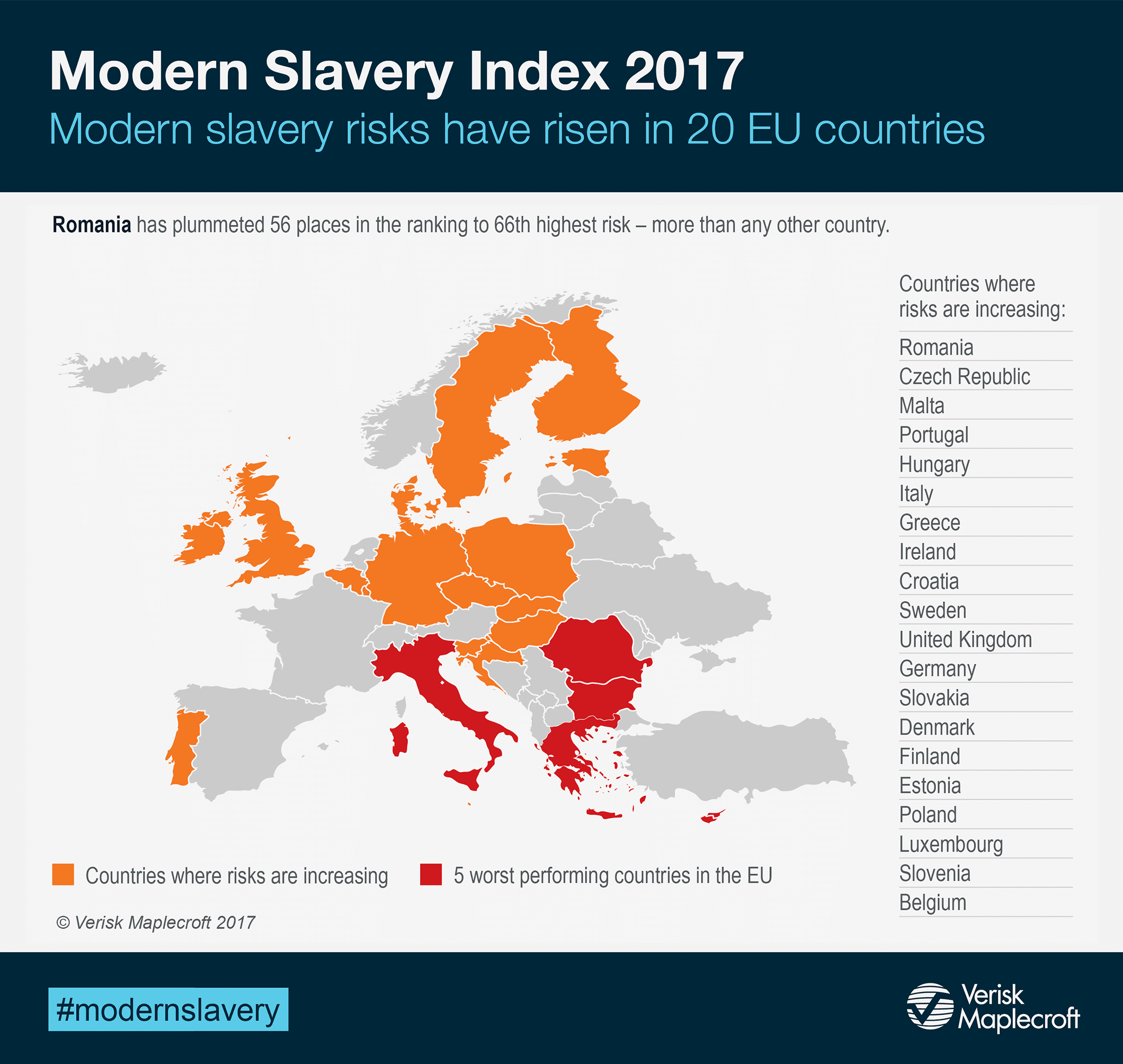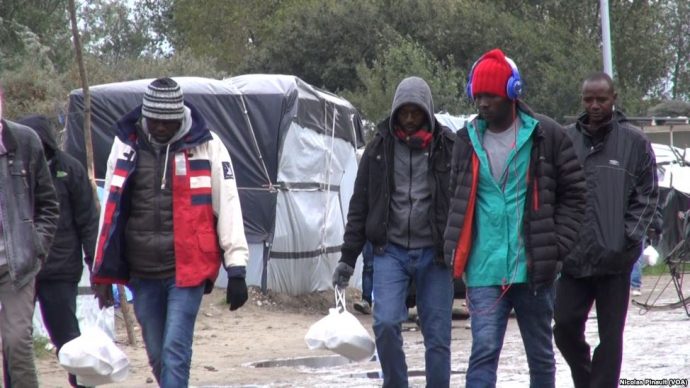Modern slavery risks have risen in nearly three quarters of the 28 member states of the European Union over the last year, reveals an annual study from global risk consultancy Verisk Maplecroft.
The research, which assesses 198 countries on the strength of their laws, the effectiveness of their enforcement and the severity of violations, shows drops in the scores for 20 countries across the bloc.
The slavery situation in Romania is deemed as deteriorating worse than any country globally, with it falling 56 places in the ranking to 66th highest risk. Romania and Italy (ranked 133rd), which fell 16 places, have the worst reported violations in the EU, including severe forms of forced labour, such as servitude and trafficking.
Exploitation of migrants driving rise in EU modern slavery risks
According to Verisk Maplecroft, the presence of these vulnerable migrant populations in the primary countries of arrival is a key contributor for increases in slavery across multiple sectors in the region, such as agriculture, construction and services.
Due to the geographic shift in migrant sea arrivals, Verisk Maplecroft expects the risk of modern slavery to worsen in Italy over the next year, with agriculture a sector of concern.

Rise in violations in Turkey
Policing labour violations is also no longer a priority for the government, which is focused on the political crackdown, further adding to the risk.
Forced labour violations remain high in Asia
With new and emerging legislation on modern slavery and human rights appearing in the UK, France, the Netherlands and Australia, the research shows that top sourcing locations in the emerging markets should, however, remain firmly on the radar of companies.














